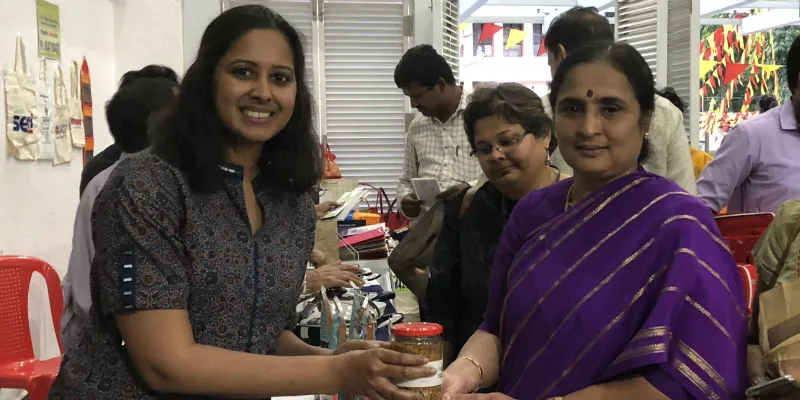Missing home food? Deccan Diaries’ traditional masalas have got you covered
An increasing number of Indians are migrating to other cities in search of work or for studies. However, while fending for themselves, they often miss out on the home-cooked food they grew up eating. Looking at this phenomenon as a business opportunity, Bengaluru-based budding entrepreneur Poojitha Prasad (35) asked herself how she could turn these people into paying customers. The answer presented itself in the form of the spices and masalas used to cook South Indian food.
“Food today has lost its traditional taste and essence. I wanted to bring back the authentic taste of south Indian cuisine by bringing masalas and powders made from organically-grown products to a wider audience,” she says. “Many Indians who stay away from home are craving for such home food.I wanted to make an effort to reach out to them and ensure they have a satisfying meal everyday, and this could be done through the masala.”
In 2017, Poojitha made her dream a reality by launching Deccan Diaries in Bengaluru. The company makes and sells various blended spice mixes and masalas. With the help of her business partner Karthik Setloor (37), the bootstrapped organisation commenced operations with an initial funding of Rs 5 lakh. “The name Deccan Diaries represents stories from the South,” Poojitha explains. “There are many blends made in different households, so we wanted to bring all the recipes under one brand,” she adds.
“I have around nine years of experience working with top MNCs, and Karthik has 12 years of experience in UI, UX and advertising,” she adds. “Together, we had a lot of interest in traditional cuisine and wanted to bring back traditional taste, and hence, we started this venture.”
In its first year, the business earned Rs 2 lakh, and made its own spice blends at a home facility to ensure fresh and authentic taste in food. It has also started supplying to retail stores, and was one of the first in the masala category to feature on Amazon Saheli in 2018.
“Only after we received a good response, we increased the range of products from three to eight in the same spice blends category. We also started approaching organic stores as well as Amazon, who all helped us in spreading the word about the brand,” she says.

Poojitha (left) selling Deccan Diaries masala to Ratna Prabha (right), ex-Chief Secretary to the Chief Minister, Karnataka
From next year, Deccan Diaries plans to set up a bigger distribution network and become profitable. “In addition to this, we want to make it a global brand and a household name in India, which is run entirely by women,” Poojitha explains. At the moment, she isn’t very far off the mark when it comes to employing women.
Deccan Diaries presently employs a team of women to handle manufacturing, production and packaging. “We specialise in providing employment for women. We have got many reviews from customers which helps us understand their requirements and adjust accordingly. Customers are happy that the product has authentic flavours rather than just spice,” she says proudly.
Now, the challenge for Deccan Diaries is to scale up while maintaining product quality. Poojitha maintains the opportunity is huge since India is the largest market for spices. “As per a study in 2017, the Indian spices market is worth Rs 40,000 crore annually, and is projected to reach $18 billion by 2020. Deccan Diaries also has strict quality standards and ensures we trade with the best quality organic farmers in Karnataka,” she says.
For her, the key is to ensure all the spices are slow roasted to make them flavorful. At the same time, she also has to oversee product freshness. Multitasking seems to be the way ahead for the business, which also has to plan for storage, get investments to increase production, and set up distribution channels. Poojitha’s top three leadership lessons, she hopes, can help her navigate through complexities. “Keeping employees, delegation of work, and staying on top of operations is critical to success,” she says.
“I advise all businesses in this sector to start really small, with minimal investment, understand the target market, and only then put in big money,” she adds. “For this sector, we require help from the government in terms of investments, reduced or subsidised rates for warehouse and equipment for women entrepreneurs, and a channel where we can get our queries about exports and licenses answered.”
(This story is published in partnership with the MSME Ministry to showcase success stories of SMEs)







